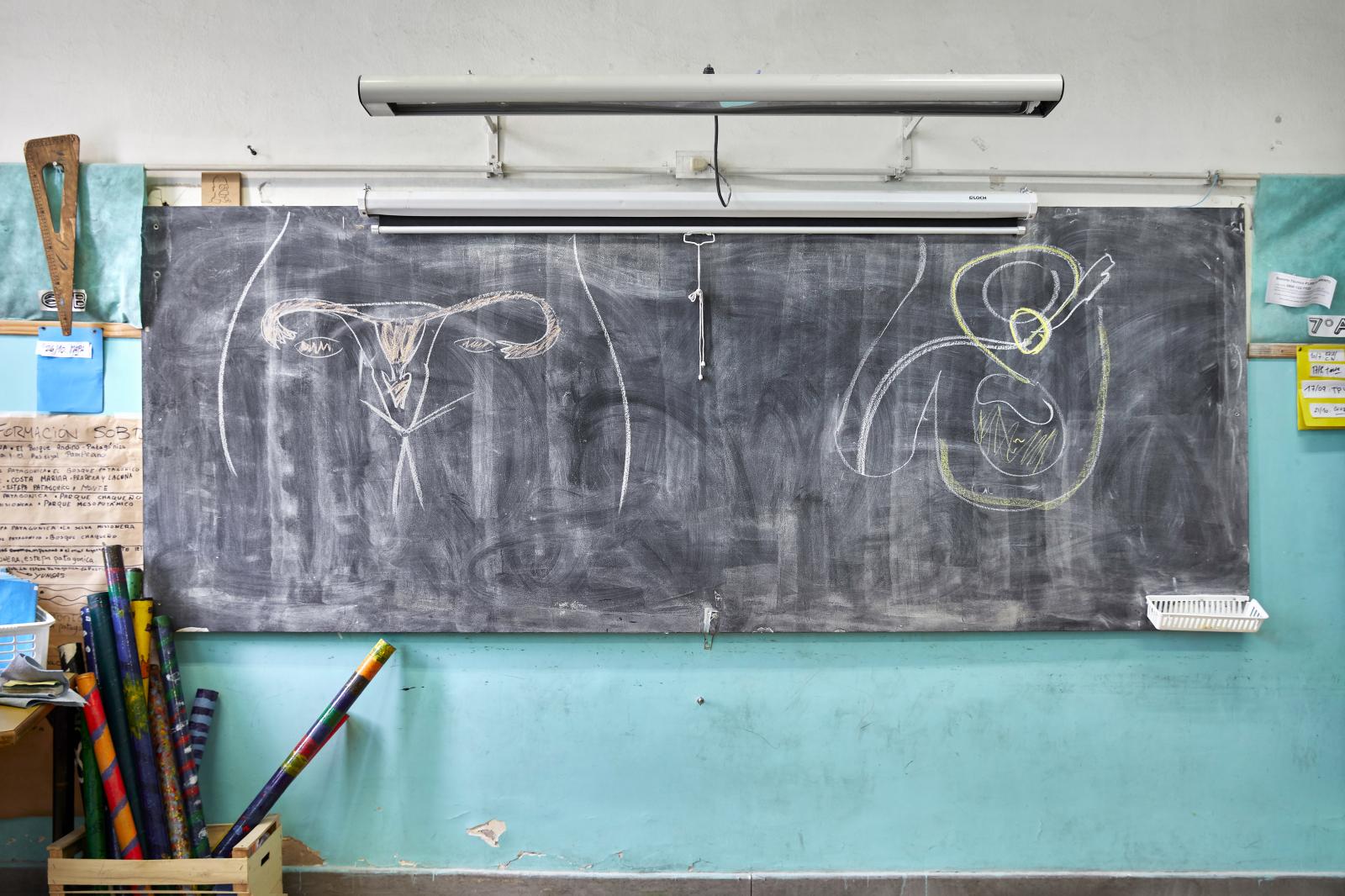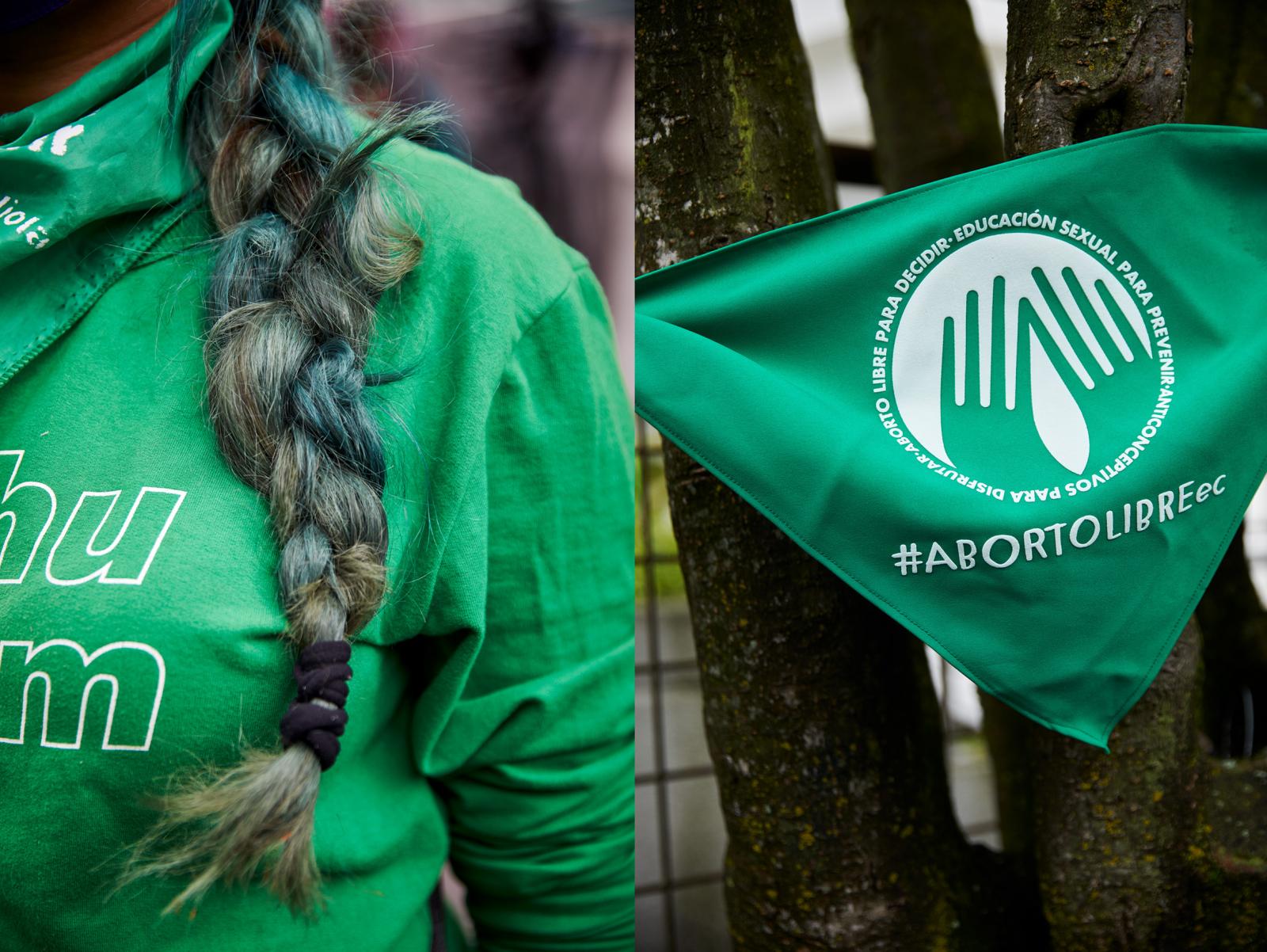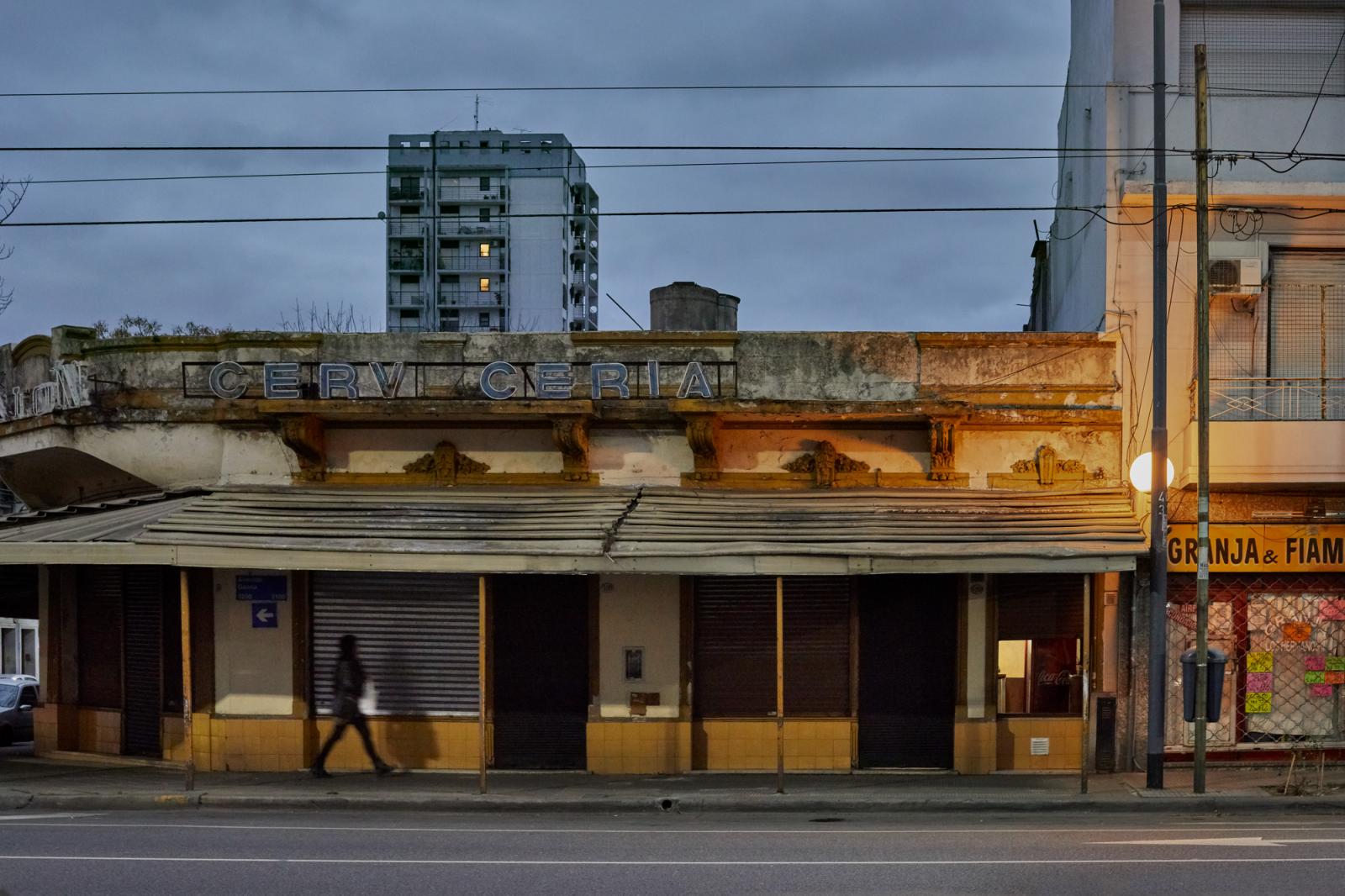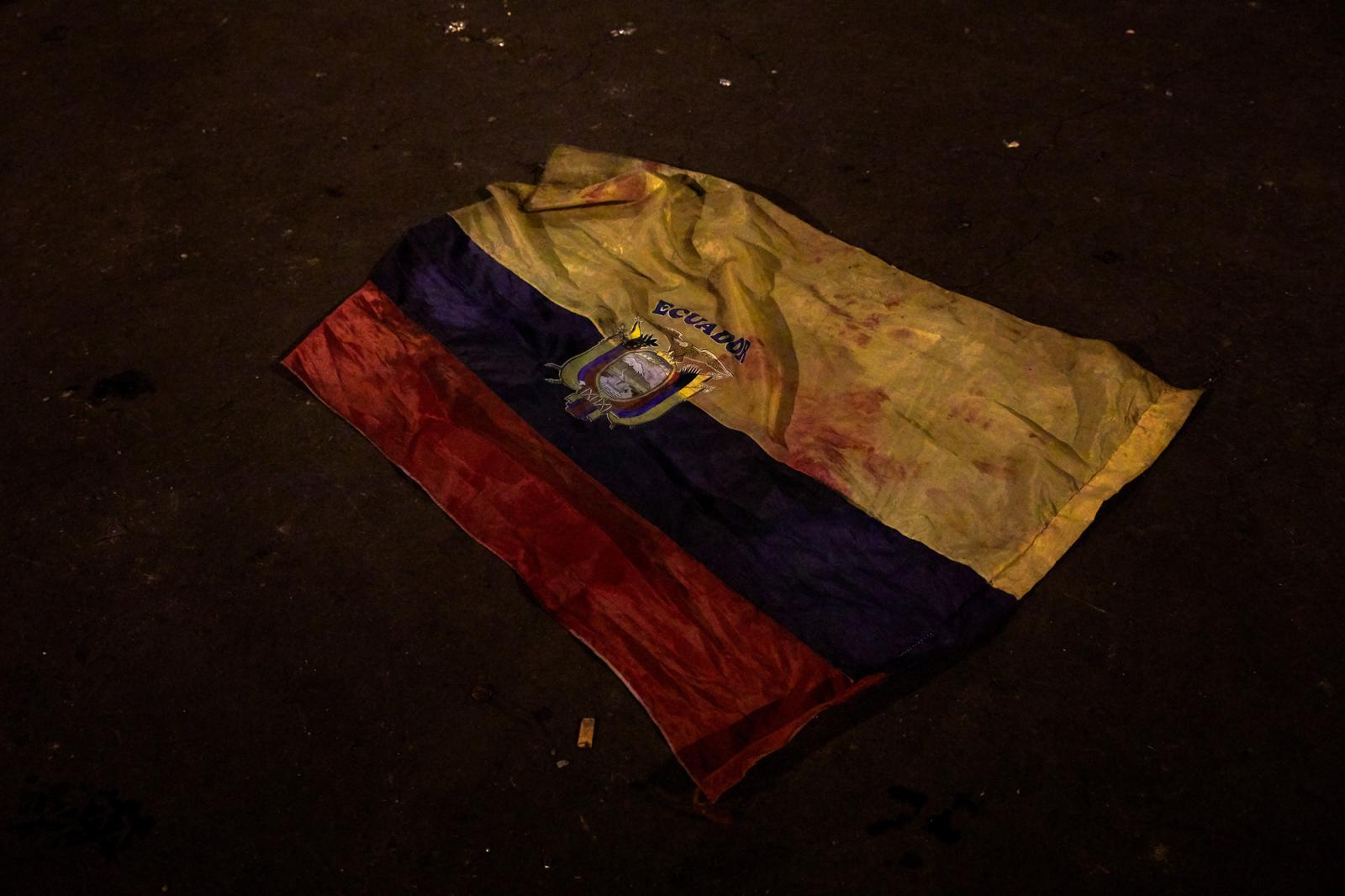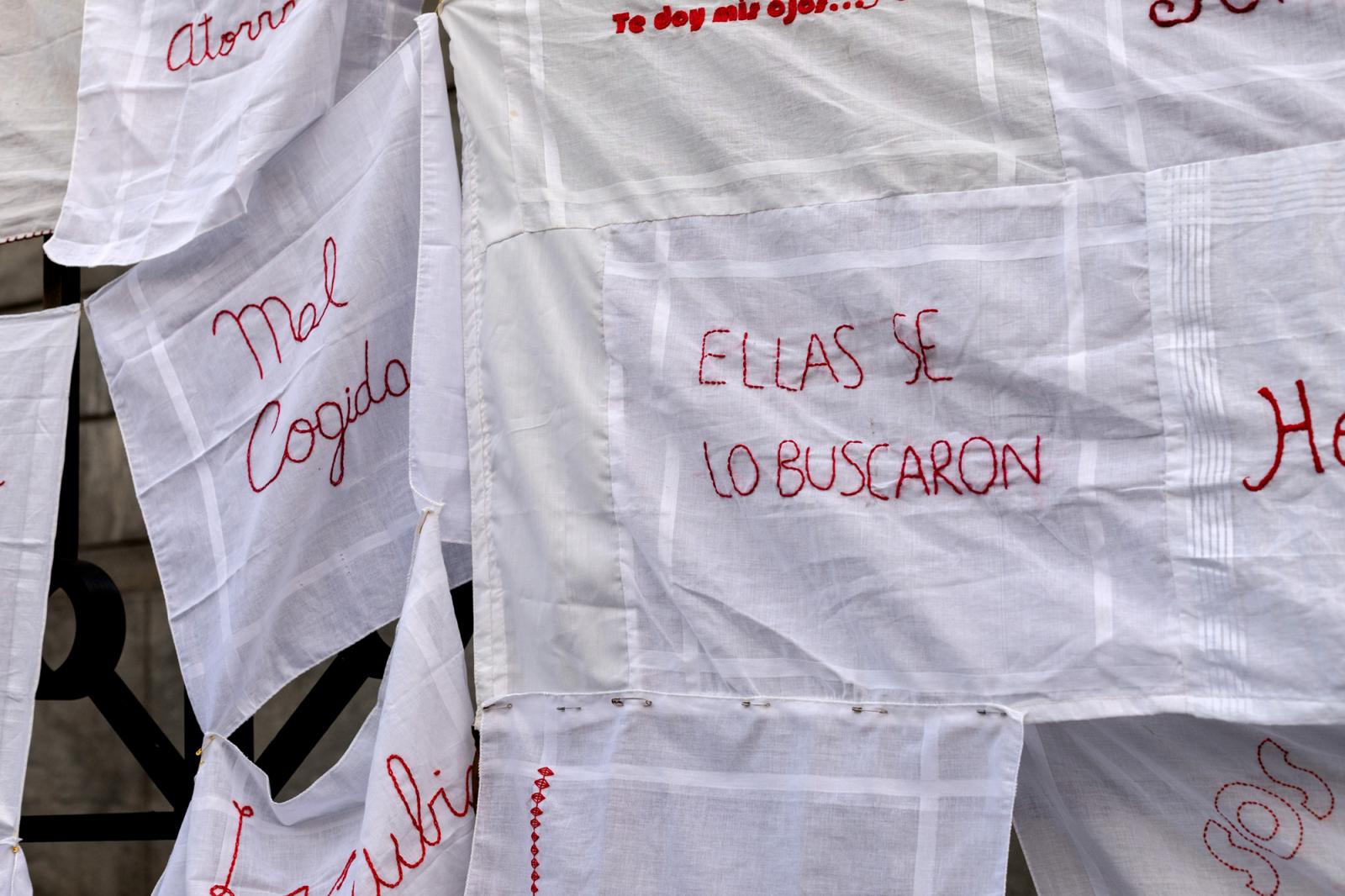
On March 12, 2020, Ecuador declared a state of exception and health emergency, and the schools have remained empty ever since. The Nina Pacha Educational Community is a school based on Waldorf pedagogy, emphasizing children’s affective relationships, the development of skills and respect for nature. The school has 190 children of school age. Each teacher decides the best way to continue the educational process of their group of students.

Portratit of Gabriela Chacha (28). She is a Social and Community Psychologist and currently doing a Specialization in Waldorf Pedagogy (for which she travels every six months to Perú). Five years ago, she is a teacher in the “Nina Pacha Educational Community” where she accompanies the same group of students with whom she started.

Gabriela sends support messages to her students and checks assignments from her cell phone while Ismael teaches an online class.
In the context of the pandemic, the work of teachers has tripled, since they must not only accompany and teach their students, but also register everything, record videos, plan and organize meetings.

Shape drawing, introduced by Rudolf Steiner, is an important foundation of Waldorf pedagogy for children's development. Gabriela Chacha prepares and records different activities so students can continue with this work. Conocoto, Ecuador.

At the end of the day, with the student who has her last meeting Gabriela waters the plants while her student accompanies her with a song, this is an activity they always did at school. Conocoto, Ecuador.

Schools based on Waldorf pedagogy do not usually use electronic devices such as computers or cell phones in their normal classes, but with the health emergency due to COVID-19 and the cancellation of face-to-face classes, they adopted initiatives to maintain contact with students. Classes are not synchronous, students like Juan (10) have a weekly meeting with their teacher to talk about their emotional state or doubts about homeworks, and some group meetings where they can also do activities and talk with their grade mates. Teachers send weekly activities that students must do according to their rhythms and time.

Juan rests for a moment after rehearsing and filming several times a play with the puppets for his English class. In this subject the students have this kind of projects every month, they have to do their homework according to their own time.

On March 12, Ecuador declared a state of exception and health emergency, and the schools have remained empty ever since. The Nina Pacha Educational Community is a school based on Waldorf pedagogy, emphasizing children's affective relationships, the development of skills and respect for nature. The school has 190 children of school age. Each teacher decides the best way to continue the educational process of their group of students.

Portrait of Elga Alquinga, 45 years old, she is a teacher at the Nina Pacha Educational Community, she is a sociologist and a pedagogue, currently doing a specialization in Waldorf pedagogy. Elga is a teacher of 7th grade, she has been with the same group of students since they started elementary school.

Elga has several virtual meetings with her students during the week. In these meetings they review assignments together, sing, read, do movement exercises and learn new topics.

Elga has several virtual meetings with her students during the week. In these meetings they review assignments together, sing, read, do movement exercises and learn new topics.

Elga has several virtual meetings with her students during the week. In these meetings they review assignments together, sing, read, do movement exercises and learn new topics.

On March 12, Ecuador declared a state of exception and health emergency, and the schools have remained empty ever since. The Nina Pacha Educational Community is a school based on Waldorf pedagogy, emphasizing children's affective relationships, the development of skills and respect for nature. The school has 190 children of school age. Each teacher decides the best way to continue the educational process of their group of students.

The Achik Muyu Educational Community has been operating for 8 years and was formed by a group of parents who promote non-directive education for their children. Due to the health emergency declared by the Ecuadorian state, face-to-face classes and productive activities were suspended, as a consequence, the school cannot continue to pay for the rent of the space where Achik Muyu works for two years. Parents organized a day to vacate the place and direct their efforts so that classes can continue virtually. Conocoto, Ecuador.

In non-directive schools, such as Achik Muyu, the methodology is based on children's learning rather than teaching. In this sense, adults have a role as partners in the children's process, and not the classic figure of teachers.
María Mina, a 32 years old Afro-Ecuadorian teacher, is a companion for the group of medium-sized children and a crafts companion in this community, poses with the school's tomato tree. Conocoto, Ecuador.

In non-directive schools, such as Achik Muyu, the methodology is based on children's learning rather than teaching. In this sense, adults have a role as partners in the children's process, and not the classic figure of teachers. Sisa (Narcisa) Lozano Guayllas, a 33 years old teacher from Saraguro, is a companion for the group of medium-sized workers and a companion for agriculture and sewing.Conocoto, Ecuador.

The project Samay decided to do that week was about making cheese at home, with the assistance of her mother Salime, showing her classmates the step-by-step process.
During the quarantine after several assemblies the community decided that only the older children would continue the virtual meetings for special activities and present their weekly projects.

The Educational Foundation Centro del Amanecer was stopped in time, dust and weeds accumulated in its surroundings; the classrooms were left with the school supplies of its students. The school houses about 50 children, due to the global health emergency currently more than 60% of families cannot afford to pay tuition fees. The school is currently conducting a fundraising campaign to cover teachers' salaries, basic services and transportation for its students. Tumbaco, Ecuador.

Sofia Armas and her daughter Samay Aldás, review the number sequence. Sofia is an educator at Educational Foundation Centro del Amanecer, the school where her daughter studies. She divides her days between working meetings with other teachers, students, parents and preparing materials for family trainings, reviewing assignments on the school's online platform and the care and teaching of her daughter. Quito, Ecuador.

Helena and Gerardo, 6 and 9 years old, rest in the patio of their house after having played with their father Rafael. Both have been studying at the Educational Foundation Centro del Amanecer for 2 years when they came with their parents from Venezuela. Their mother, Xioralbys, is an educator at the same school. Gerardo has TDH and has always had a hard time in other schools, which is why his parents sought a different education for their children when they arrived in Ecuador. Tumbaco, Ecuador.





















